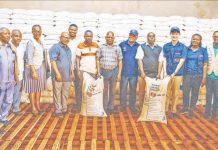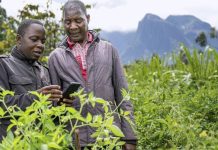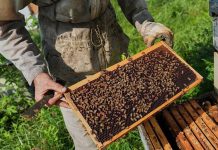AfricaPress-Tanzania: NEWS that 32 farmers affected by excessive rainfall and drought incidents have been compensated 23m/- for their crop losses at a recent event which took place in Morogoro, is a new development aimed to revitalize agriculture as the mainstay of the national economy.
It is in the public interest to have a financially stable agricultural sector that produces the nation’s safe and affordable food and fibre supply and supports the rural economy.
That necessitates the presence of a publicly-supported safety net for farmers, who increasingly face variable weather patterns that challenge the food production system as well as face unfair competition from foreign countries that subsidize heavily and violate international trade rules.
The National Insurance Corporation has introduced the safety net of crop insurance. Its importance was in full display in Morogoro when the Permanent Secretary in the Ministry of Agriculture handed over a 23m/- cheque to 32 farmers whose crops – maize and paddy – were heavily affected by the 2019/20 agricultural season excessive rains and drought incidents.
Crop insurance is the primary risk management tool farmers use to financially recover from natural disasters and volatile market fluctuations; pay their bankers, fertilizer suppliers, equipment providers and landlords; purchase their production inputs for the next season; and give them the confidence to make long term investments that will increase their production efficiency.
Without effective and affordable crop insurance, catastrophic production losses would sap the rural economy by setting in motion a series of harmful events: farm failures and consolidation, job losses, farm-related small business failures, financial stress on rural banks and reduced investment in U.S. agriculture.
A financially healthy rural economy requires a financially healthy farm production sector. Crop insurance is also critical in helping new and beginning farmers obtain credit and enter farming to become the next generation of producers that meet the growing global food, fiber and energy needs.







